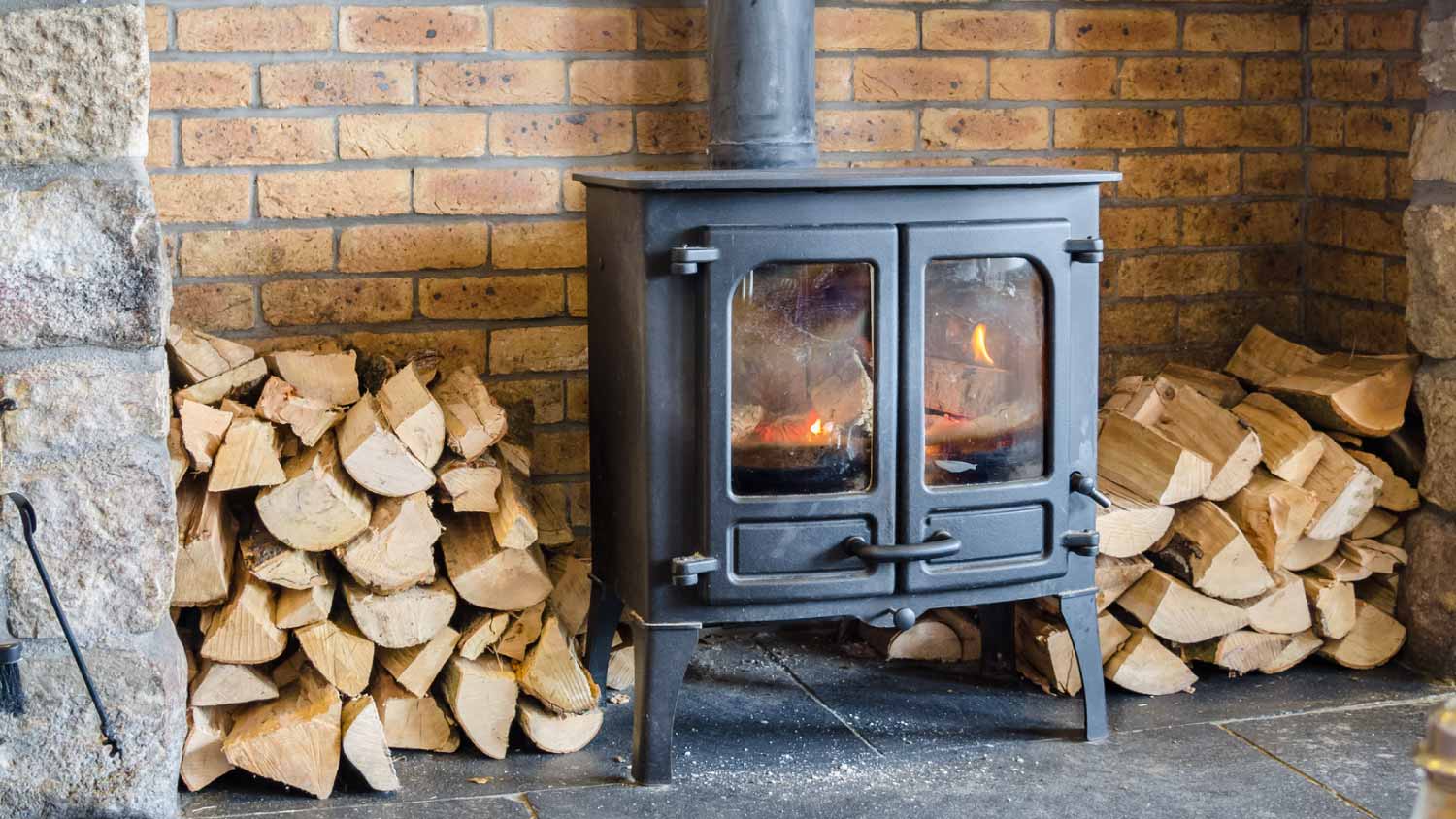Why Is My Dishwasher Loud?
Stop the dishwasher din with a few troubleshooting tips
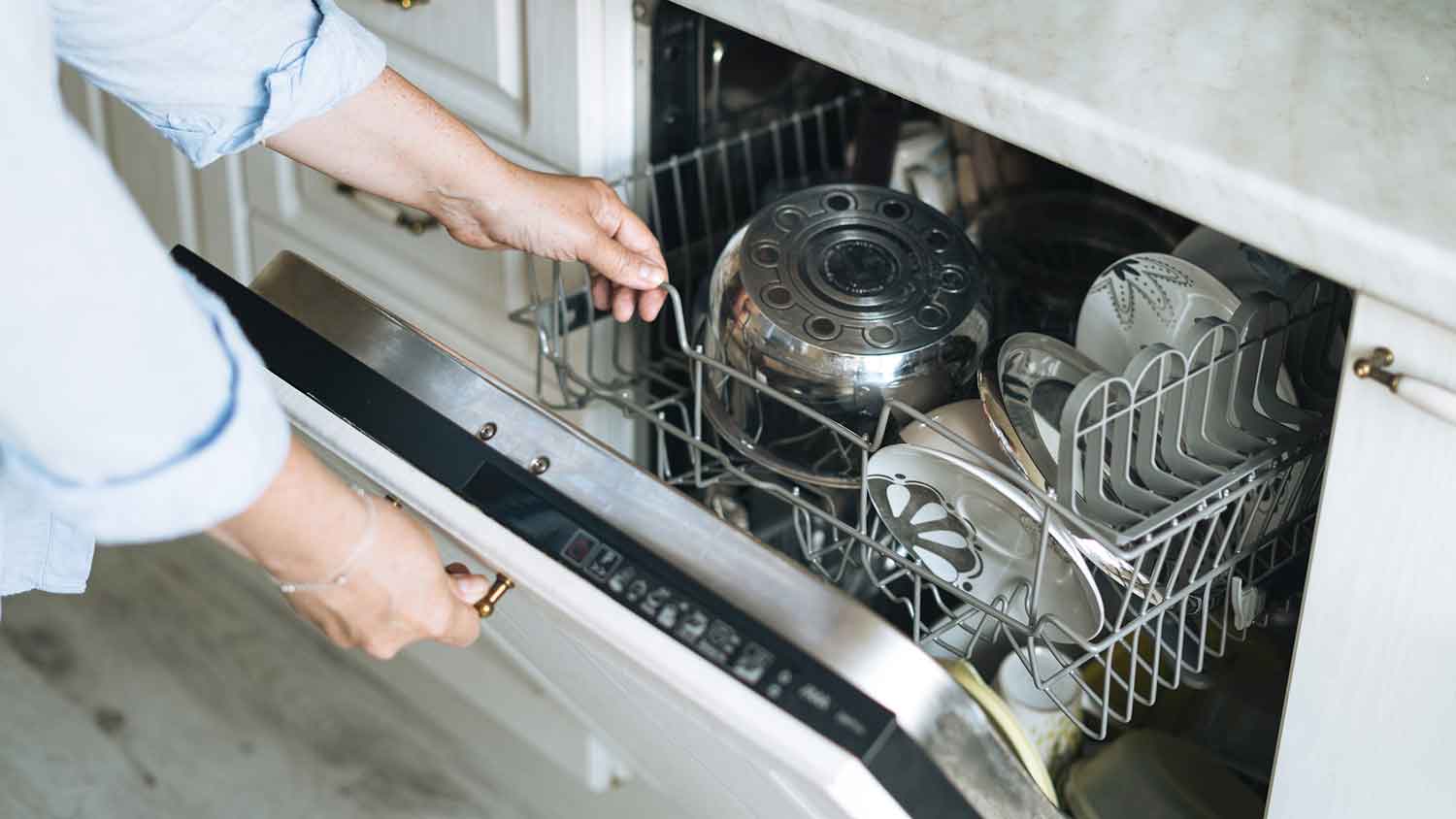

Loose dishes can cause loud banging noises inside a dishwasher.
Clogs and malfunctioning parts are other common causes for a noisy dishwasher.
Stay on top of routine dishwasher maintenance to prevent issues.
If you need to repair or replace parts, hiring a dishwasher repair pro is your best bet.
The average cost to replace a dishwasher is $1,200.
A running dishwasher shouldn’t sound like a party. If you hear regular clanking, it may be time to play detective and get to the bottom of the problem. Dishwashers can make all kinds of sounds due to clogs, old age, broken parts, and user error. Let’s break down the seven most common reasons why your dishwasher is loud so it can clean in peace and quiet.
1. Poor Dish Placement
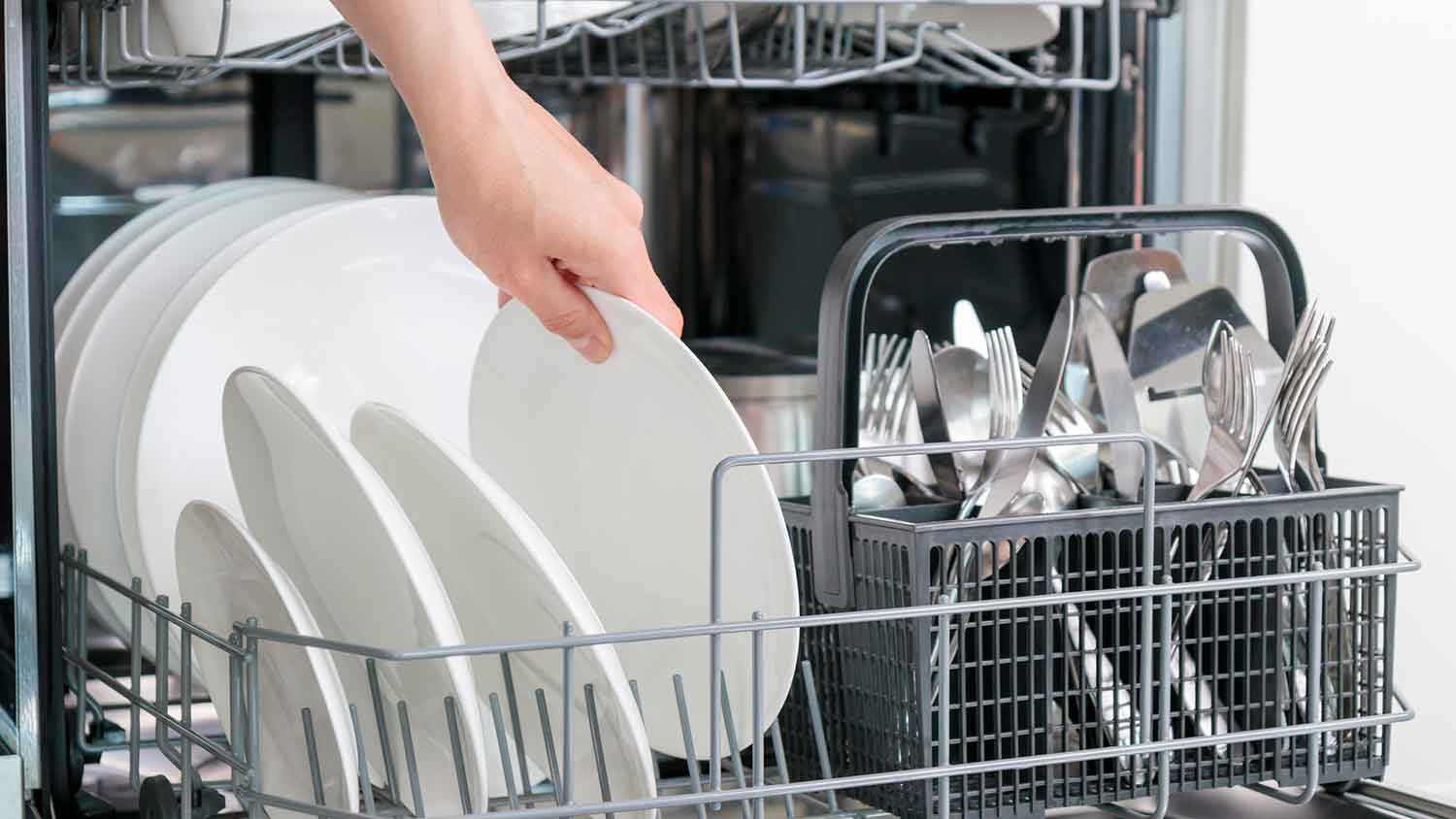
One of the biggest causes of a loud dishwasher is loose dishes. If you cram too many dishes into a dishwasher, they can clash against each other as the spray arm rinses them. A clanging noise is a big telltale sign that your dishes need rearranging.
How to Fix It
Space the dishes out, making sure they fit snugly on the racks. Place larger cookware in the middle to keep them from hitting the sides. If you notice a heavier dish tilting forward, it might be worth cleaning it by hand.
2. Clogged Spray Arm
Spray arms send water around the dishwasher, but when they become plugged, the pressure from the blocked water can create a loud sound.
How to Fix It
To fix this, check for mineral deposits, stray utensils, and debris. You can clean the spray arms using vinegar or make a paste of baking soda and let it sit on the buildup. Then, use a small wire to loosen clogs.
3. Malfunctioning Drain Pump
Your dishwasher’s drain pump is an important part of the drainage system. If it fails to operate correctly, then you’ll hear loud grinding, buzzing, or squealing noises, and your dishwasher won’t drain well.
How to Fix It
While cleaning the drainage system might help with this problem, if you have a malfunctioning drain pump, you’ll need to hire a technician to confirm the diagnosis and replace the pump to restore proper function.
4. Inlet Valve Issue
Water inlet valves can become finicky for several reasons. The small filter inside the inlet valve is prone to clogs from hard water sediment and the valve itself can wear down from the repetitive opening and closing during the dishwasher cycle. You might hear a loud screeching noise if the water inlet valve is plugged.
How to Fix It
Since the inlet valve is usually located underneath the dishwasher, consider hiring a professional for the disassembly. If that doesn’t do the job, or there are signs of wear and tear, your pro can order the correct replacement inlet valve to fix the problem.
5. Worn Circulation Pump
A loud buzzing or high-pitched sound emanating from your dishwasher might be an issue with the circulation pump. The bearings of your circulation pump can become worn out, leaving your dishes looking dirty after a cycle.
How to Fix It
If you notice your dishes still have stuck-on food, then you might need to replace the circulation pump with the help of a knowledgeable professional.
6. Broken Impeller
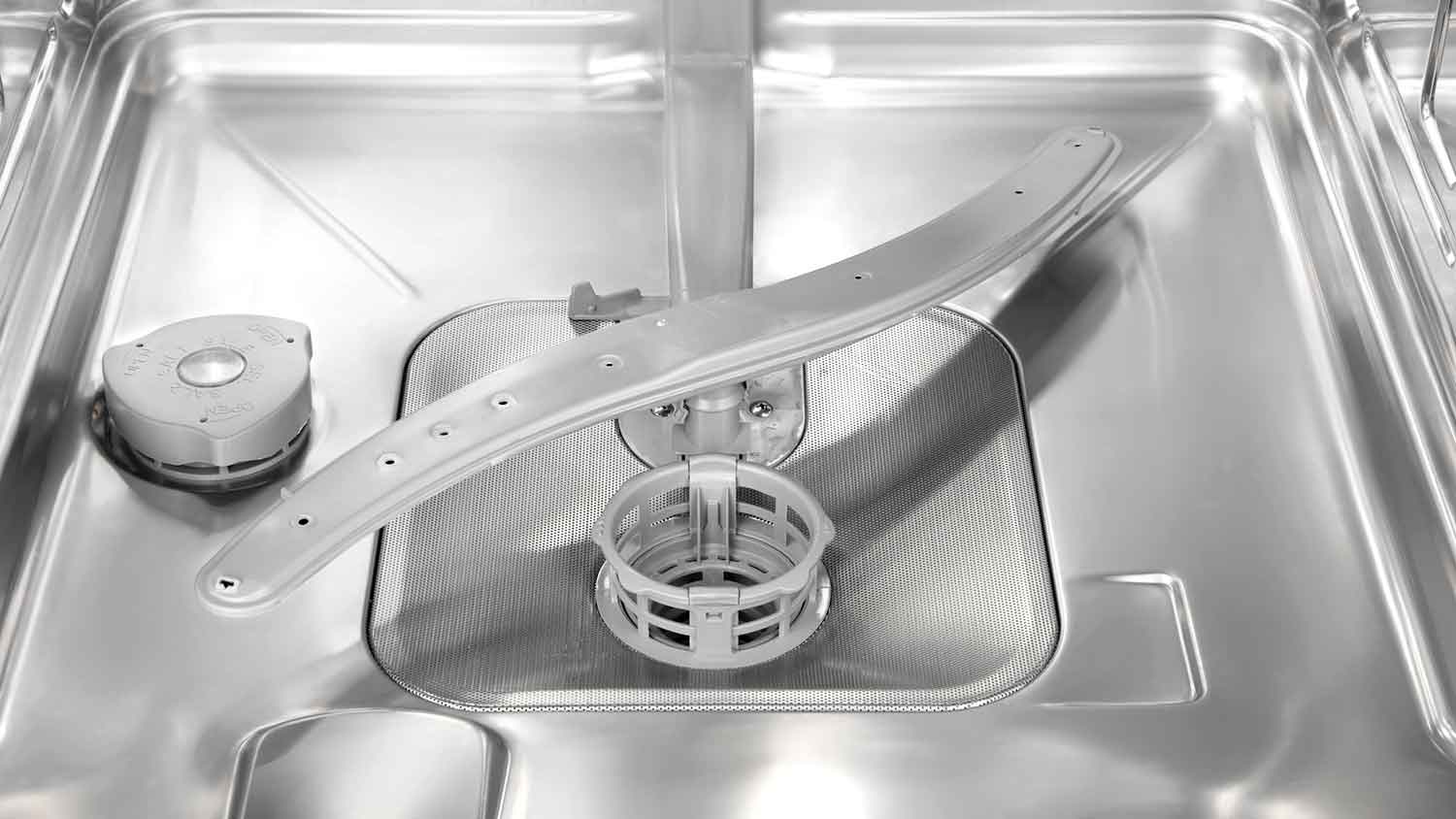
A pump impeller has fins that help propel water through the dishwasher’s spray arms. It also helps flush water during the drain process.
How to Fix It
A propeller can break after years of working through chunks of food and other stubborn debris. This is not a DIY project and likely needs the help of a professional if you have to replace it.
7. Loose Drain Hose
Sometimes, the drain hose that connects your dishwasher to the primary drain can become loose. Another issue: it may have been improperly installed in the first place. In this case, the hose moves around while your dishwasher drains, causing a loud noise. To spot this culprit see if your dishwasher is making a racket only when it's draining.
How to Fix It
In most cases, you can use a pipe clamp, zip ties, or wire to secure the drain hose and prevent it from moving during the dishwasher cycle.
When to Call a Pro
When you've tried the straightforward hacks to make your dishwasher quieter to no avail, it might be time to call in an expert. A dishwasher repair pro near you can troubleshoot your dishwasher and determine whether it needs repairing or if you need to replace the dishwasher entirely. Installing a new dishwasher costs between $1,000 and $1,500 on average.
How to Prevent Loud Dishwasher Noises
If your dishwasher is over 10 years old, then it may be time to replace it. However, a newer dishwasher is the perfect opportunity for you to implement some best practices to prevent future issues that lead to a loud dishwasher, including the following tips:
Scrape off large food particles before loading.
Always stack dishes and utensils in an orderly fashion.
Avoid overloading your dishwasher.
Use the recommended amount of detergent.
Clean your dishwasher every three to six months.
Run a vinegar rinse to remove hard minerals.
Invest in a water softener.
Repair your dishwasher as soon as problems arise.
Operate the dishwasher periodically to prevent buildup.
Frequently Asked Questions
The typical lifespan of a dishwasher ranges from 10 to 12 years. With proper maintenance, your dishwasher could last for 15 years or more. Dishwashers with high-quality parts have a longer lifespan overall. Your water hardness, loading practices, and the frequency of use can also impact the lifespan of your dishwasher.
Not all noises coming from your dishwasher mean that there's a problem. Dishwashers will make sounds while operating—humming, swishing, and sloshing sounds are normal noises you'll hear from a functional dishwasher. But some sounds do indicate a sign of an underlying issue. If you hear pounding, drumming, grinding, or rattling noises, consider having a dishwasher technician look at your appliance.


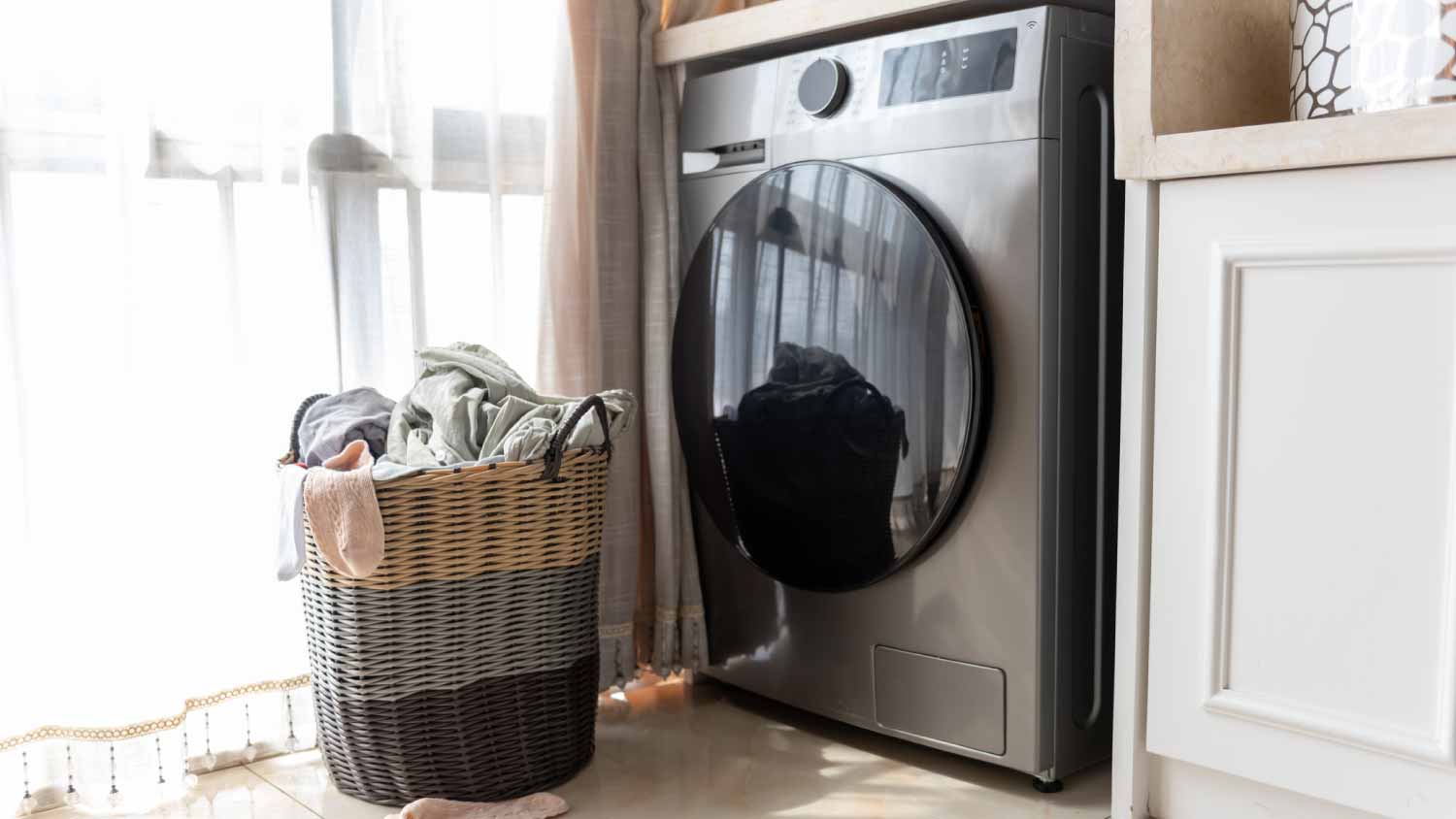
.jpg?impolicy=leadImage)

- Appliance Repair Companies
- Washing Machine Repair
- Dryer Repair
- Refrigerator Repair
- Dishwasher Repair
- Oven Repair
- Wood & Pellet Stove Repair
- Freezer Repair Services
- Wood Stove Services
- Gas Stove Repair
- Emergency Appliance Repair Companies
- Ice Maker Repair
- Gas Appliance Repair
- GE Appliance Repair
- GE Refrigerator Repair
- GE Dryer Repair
- GE Dishwasher Repair
- GE Washing Machine Repair
- Samsung Appliance Repair
- Samsung Refrigerator Repair
- Samsung Dryer Repair
- Samsung Washer Repair
- Samsung Dishwasher Repair
- Samsung Oven Repair
- Whirlpool Repair
- Whirlpool Refrigerator Repair
- Whirlpool Washer Repair
- Whirlpool Dryer Repair
- Whirlpool Oven Repair
- Maytag Appliance Repair
- Maytag Refrigerator Repair
- Maytag Washer Repair
- Maytag Dryer Repair
- Maytag Dishwasher Repair
- Kitchenaid Appliance Repair
- Kitchenaid Oven Repair
- Kitchenaid Refrigerator Repair
- Kenmore Appliance Repair
- Kenmore Dishwasher Repair
- Kenmore Washer Repair
- Kenmore Dryer Repair
- LG Refrigerator Repair
- Bosch Appliance Repair
- Kenmore Refrigerator Repair
- LG Appliance Repair Services
- GE Microwave Repair
- Electrolux Appliance Repair
- Electrolux Washer Repair
- Kitchenaid Dishwasher Repair Services
- Wood Stove Inspection
- Dishwasher Installation
- Trash Compactor Repair


